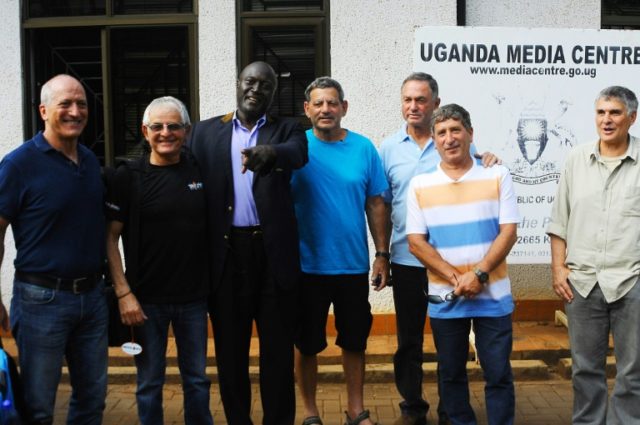Entebbe (Uganda) (AFP) – Forty years ago, Israeli commandos grabbed headlines with a bold raid at Entebbe airport to free the passengers of a plane hijacked by Palestinians and Germans radicals.
The operation took place overnight on July 3-4 1976, and freed all but four of 105 hostages, with the loss of one Israeli soldier, Yonatan Netanyahu, the brother of Israeli Prime Minister Benjamin Netanyahu.
Other casualties include three hostages killed during the attack, a fourth who was in hospital and later murdered on the orders of Ugandan strongman Idi Amin, 20 Ugandan soldiers and seven hostage takers.
The drama began on June 27 when an Air France jet flying from Tel Aviv to Paris with more than 250 people was hijacked and forced to land in Benghazi, Libya. Two Palestinians and two members of a left-wing German group had boarded the plane during a stop in Athens.
The hijackers, including one woman, were armed with pistols, grenades and explosives.
Late on June 28, the Airbus A300 landed at Entebbe airport, south of Kampala, with permission from Amin, and three more people joined the hijackers.
The passengers and crew were taken to the terminal building and kept under guard.
The hijackers threatened to blow up the plane unless 53 Palestinians or supporters of their cause were freed within two days. Twenty nine of them were being held in Israel.
– Going in at midnight –
Israeli officials negotiated with the hijackers and were initially considering their demands, so the deadline was pushed back to July 4.
Meanwhile, talks between Amin and the hijackers resulted in the release of two sets of hostages, but 105 people — Israeli and Jewish passengers, as well as members of the plane’s crew — remained in detention.
“Israel decided to act and not give in,” prime minister Yitzhak Rabin was later quoted as saying, and with time running out, a complex military operation was given the green light.
Just before midnight on July 3, four Israeli C-130 transport planes flew low over Lake Victoria and landed at Entebbe after covering more than 3,600 kilometres (2,200 miles) and evading detection by Ugandan air controllers.
General Dan Shomron commanded the airborne operation, several members of which occupied a black Mercedes like the one used by Amin. The commandos quickly seized key airport installations, but lost the element of surprise when they fired on Ugandan soldiers that challenged them in the dark.
A battle broke out and the hostages were freed, but three died along with Netanyahu, who led the first assault team. All seven hostage takers were shot dead, along with 20 Ugandan soldiers. One hostage, Dora Bloch, had been hospitalised before the raid, and Amin later ordered that she be killed.
Initially dubbed “Operation Thunderbolt,” the raid was later renamed “Operation Jonatan” in honour of Netanyahu.
Amin, who was humiliated by the daring operation, lashed out at the Kenyan government for letting Israel use Nairobi’s airport during the evacuation phase. Israel’s Mossad intelligence service helped plan the raid with a map of the terminal provided by the Israeli company that built it, and information from passengers who had already been released.
The operation became a legendary example of special forces action, and several films and television documentaries have been based on it.

COMMENTS
Please let us know if you're having issues with commenting.